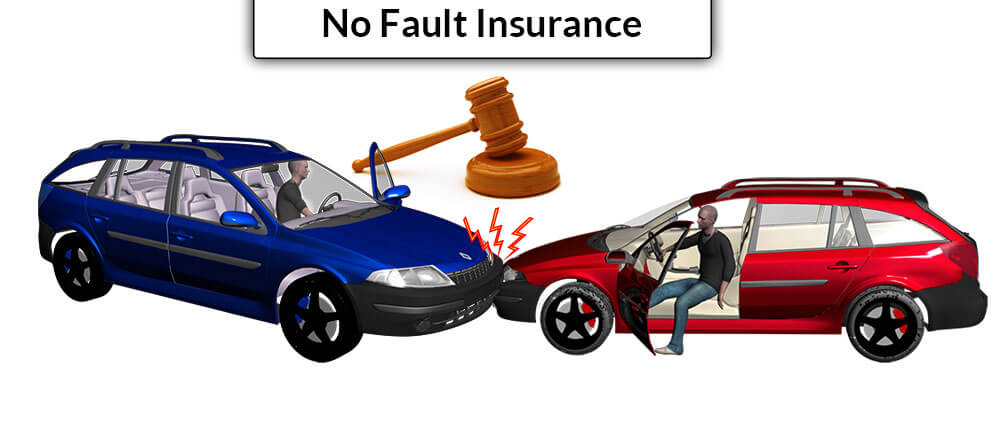Also known as personal injury protection (PIP), a no-fault
auto insurance is a policy that covers your medical bills and loss of income following a car accident regardless of who is the at-fault party. This means that instead of filing a liability claim, each party involved in an accident files a no-fault claim with their respective insurers. It’s worth noting that you don’t have to be injured inside a car for this policy to cover your medical costs. For instance, if you get injured in a hit-and-run while jogging on the sidewalk, no-fault insurance will still cover your medical costs up to your coverage limit. New York and Pennsylvania are among the 12 states in which no-fault auto insurance is mandatory.
Here’s an in-depth look at no-fault auto insurance coverage.
How Does No-fault Insurance Work?
A no-fault auto insurance policy covers medical expenses for minor injuries resulting from a car crash. Additionally, if your injuries cause you to lose your ability to earn an income, your no-fault insurance policy will cover your lost wages up to the coverage limit. Depending on the type of coverage you have, this policy can also cover the expenses of hiring someone to help with household chores while you nurse your injuries. Common exclusions in a standard no-fault auto insurance policy include, among others, theft or damage to your vehicle, damage to other people’s property, and medical expenses exceeding your coverage limits. As such, ensure you carry additional coverages such as collision insurance and liability insurance for more comprehensive coverage.
Filing a No-fault Insurance Claim
According to the
Insurance Information Institute (III), a no-fault auto insurance policy aims to lower
car insurance costs by limiting the number of accident-related lawsuits. This policy covers minor injuries resulting from an auto accident. However, if you suffer major injuries, you can also sue the at-fault party, provided your injuries meet a certain threshold of severity, which can be expressed in either verbal or monetary terms. When filing a no-fault insurance claim, be sure to provide details of your accident, the severity of the injuries, and documentation concerning the medical expenses and lost income. The good thing about no-fault claims is that there’s no need to prove fault, and as such, the claims settlement process is usually fast.
Tips for Buying No-fault Insurance
As mentioned earlier, no-fault auto insurance is mandatory in some states and optional in others. If you live in a no-fault state, use these tips to get the right no-fault auto insurance coverage:
- Find out the minimum required – Most no-fault states usually require their citizens to carry certain minimums on their no-fault auto policies. For instance, in New York, one person should have at least $50,000 worth of personal injury protection on the no-fault auto insurance, per the New York Department of Financial Services (DFS). Take note that you can also increase your coverage depending on your needs.
- Consider who and what the policy covers – Depending on the type of coverage you have and your state, your no-fault policy can cover your entire family as well as additional expenses such as in-home help.
- Ask for discounts – Typically, asking for discounts can help lower your no-fault auto insurance premiums. Also, bundling policies and driving safely can earn you discounts on your premiums.
A no-fault insurance policy covers the medical costs resulting from an auto accident without apportioning blame to any party. The right
car insurance policy will be there for you during your time of need. When looking to secure reliable auto insurance coverage, talk to the team at
Tompkins Insurance Agencies. We are here to assist you with all your coverage needs.


